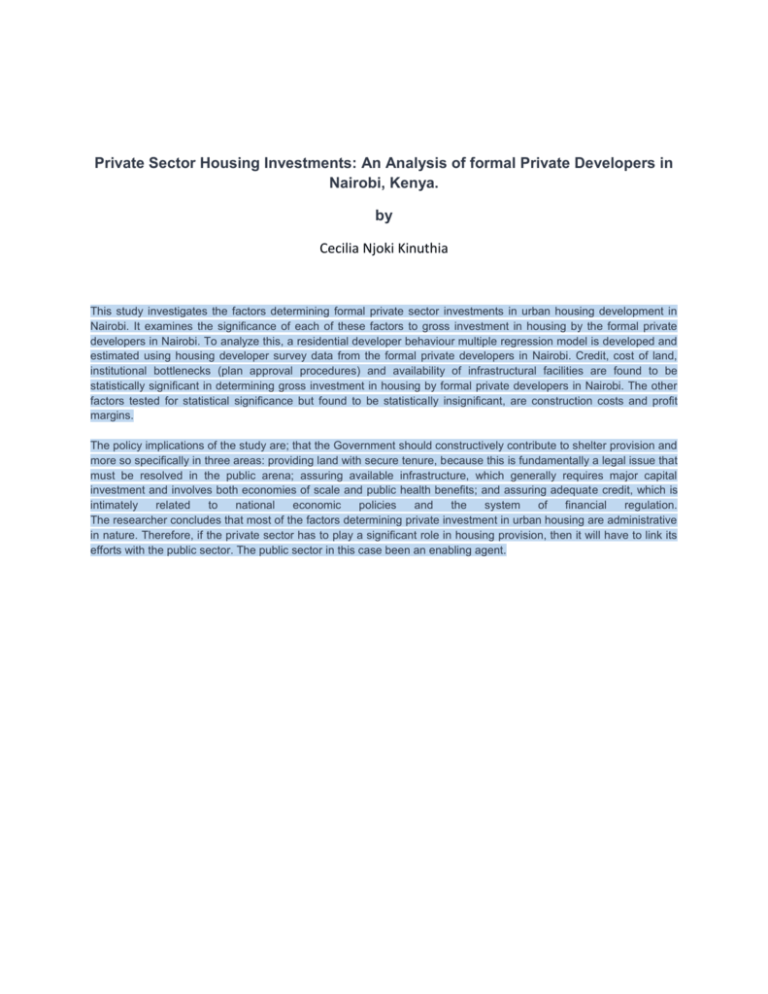kinuthia
advertisement

Private Sector Housing Investments: An Analysis of formal Private Developers in Nairobi, Kenya. by Cecilia Njoki Kinuthia This study investigates the factors determining formal private sector investments in urban housing development in Nairobi. It examines the significance of each of these factors to gross investment in housing by the formal private developers in Nairobi. To analyze this, a residential developer behaviour multiple regression model is developed and estimated using housing developer survey data from the formal private developers in Nairobi. Credit, cost of land, institutional bottlenecks (plan approval procedures) and availability of infrastructural facilities are found to be statistically significant in determining gross investment in housing by formal private developers in Nairobi. The other factors tested for statistical significance but found to be statistically insignificant, are construction costs and profit margins. The policy implications of the study are; that the Government should constructively contribute to shelter provision and more so specifically in three areas: providing land with secure tenure, because this is fundamentally a legal issue that must be resolved in the public arena; assuring available infrastructure, which generally requires major capital investment and involves both economies of scale and public health benefits; and assuring adequate credit, which is intimately related to national economic policies and the system of financial regulation. The researcher concludes that most of the factors determining private investment in urban housing are administrative in nature. Therefore, if the private sector has to play a significant role in housing provision, then it will have to link its efforts with the public sector. The public sector in this case been an enabling agent.











